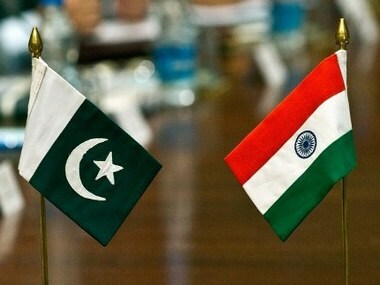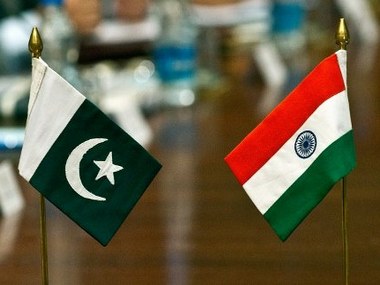By Seema Guha Those who had hoped that the Pathankot terror strike may for the first time not affect the Prime Minister Narendra Modi and his Pakistan counterpart Nawaz Sharif’s attempts at rapprochement, will have to think again. India and Pakistan are back to square one as earlier hopes that with the army on board on the talks, Nawaz Sharif would be in a position to keep his word is fast fading. Nawaz Sharif may still pull a rabbit out of the hat, but India appears frustrated at Pakistan’s inability to walk the talk. Those opposed to talks in Pakistan have yet again succeeded in de-railing the conversation. Going by what foreign secretary S Jaishankar said in his address at the counter terrorism conference in Jaipur on Wednesday, India is not optimistic. Though he did not refer to Pakistan by name, the tone and tenor of his speech made it obvious that the government is now convinced that the Pakistan army or at least elements within the security establishment were hand in glove with the terrorists who celebrated the new year with an attack on the India’s front line airbase. [caption id=“attachment_2610736” align=“alignleft” width=“380”]  Representational image. AFP[/caption] “In most cases, it is difficult for non-state actors to operate without the support and connivance of states,” Jai Shankar said, speaking in general terms. But it was a veiled reference to the old position of the Indian establishment that without logistics and help from within the Pakistan security apparatus, no heavily armed terror outfit would be in a position to sneak across the border. Even more telling are the Foreign Secretary’s remarks on non-state actors. “This is now where the ‘non-state’ actor comes in; occasionally as a genuine outcome of governance incapability, but more often as an escape clause. It isn’t difficult in this modern age to trace the roots of a terrorist attack to a particular geography. The standing of those involved in terrorism in any society is not difficult to establish either. Clearly, it means something if they operate openly out of a big city with a known address, than if they live in a remote cave or an isolated jungle hideout,” the foreign secretary said. “A paradigm, however, is not just about its human element. Terrorists use weapons that have clear sources of origin. They need financing and money usually leaves a trail. They deal with commodities; traders and brokers cannot be secrets. We have seen, in other areas, the effectiveness of controlling both upstream and downstream activities. Why not in countering terrorism?” he asked. So where does this leave India-Pakistan ties? The hope that Modi’s unconventional diplomacy would make a difference has evaporated. Foreign Secretary S Jaishankar was to travel to Islamabad to firm up both the format and the timeline of the comprehensive dialogue. But after a 15 January announcement that the meeting of the foreign secretaries would be re-scheduled, no fresh dates have been announced. Unless Pakistan takes some action against the Jaish-e-Mohammed group, or get back to India with the names and locations of those elements in Pakistan who were in touch with the terrorists in Pathankot Modi will not be in a position to continue his peace efforts. The opposition Congress is one factor, but not an important one. Modi would be more concerned about his own hardline supporters within the larger Sangh Parivar family of the RSS and other affiliates. But the puzzling question is, did the Prime Minister and his advisers not take this into account that a terror attack to derail the talks would follow. This had happened many times in the past. The Mumbai strikes took place when the Pakistan foreign minister was in Delhi with the then PPP president Asif Zardari keen on breaking the impasse with India. Nawaz Sharif may have been encouraged by his army chief Raheel Sharif’s crackdown on terrorists inside Pakistan, and believed the army was on board this time around. Previously during the Lahore peace initiative, the then army chief General Pervez Musharraf had refused to meet with the visiting Indian prime minister Atal Bihari Vajpayee. Later the Kargil incursions happened. Immediately after the Pathankot attack, Pakistan made the right noises. There was hope in Delhi that this around Nawaz Sharif would have his way. But Delhi no longer seems convinced. Talk of a team flying in from Islamabad has also fizzled out. Perhaps it would have been better for the National Security Adviser Ajit Doval and his Pakistan counterpart, retired General Nasir Janjua, to meet immediately after the attack to discuss the situation. They have been in touch on the phone from the beginning, but nothing seems to have moved so far. “The longer we delay the talks, the less chance there is of them taking off,” said former foreign secretary Salman Haider. But he admitted that with Pakistan unable to deliver it is difficult for the government to go ahead. Narendra Modi’s Pakistan policy had not been clear sighted from the start. It has been in fits and starts. His attempts to revive the talks won him kudos both at home and abroad. But the talks have now hit the terror roadblock which could be difficult to surmount.
The hope that Modi’s unconventional diplomacy would make a difference has evaporated. Foreign Secretary S Jaishankar was to travel to Islamabad to firm up both the format and the timeline of the comprehensive dialogue.
Advertisement
End of Article
Written by FP Archives
see more


)

)
)
)
)
)
)
)
)



